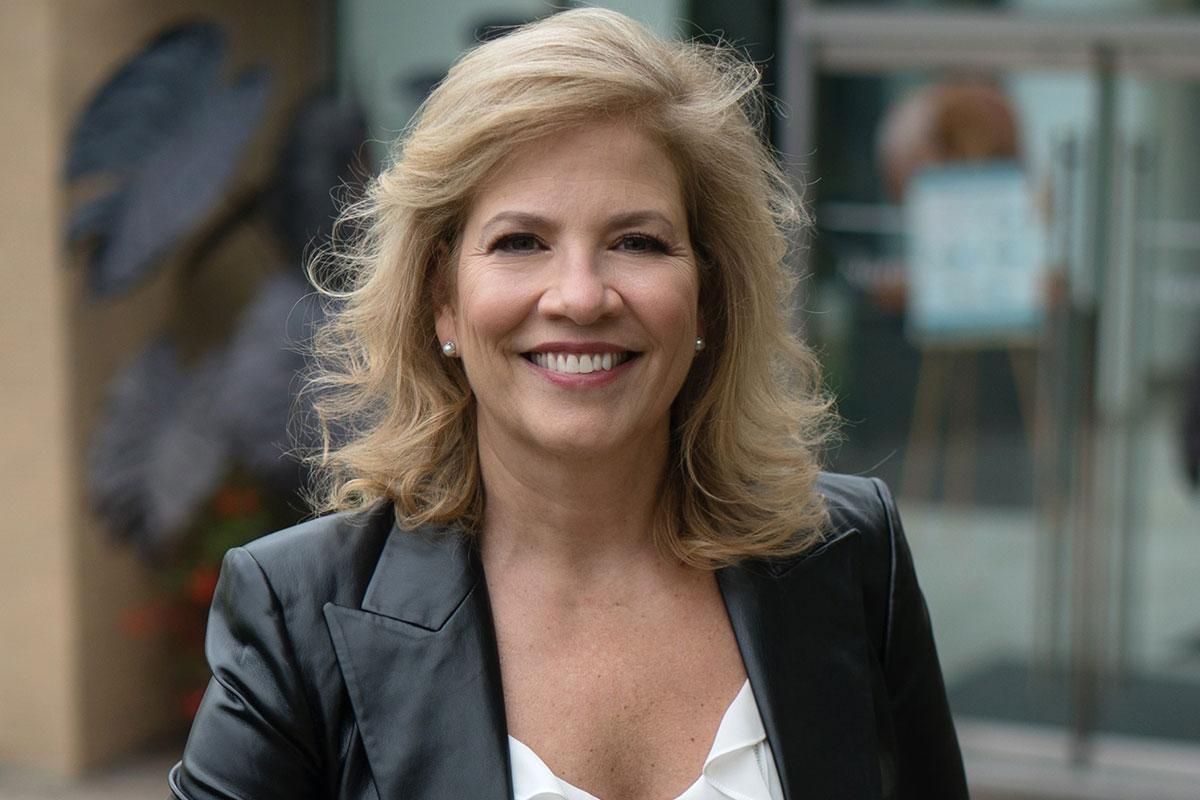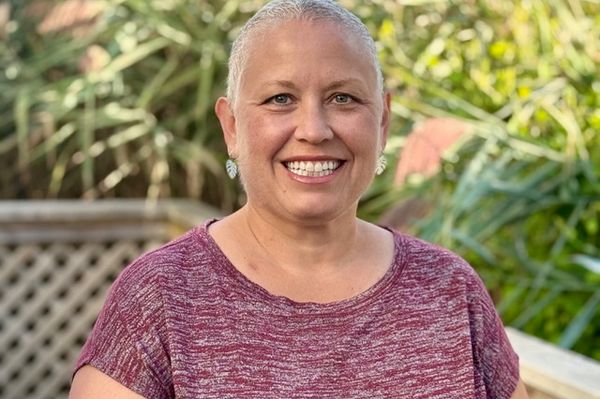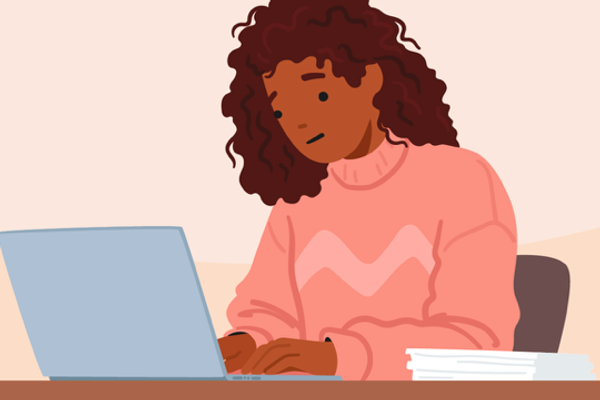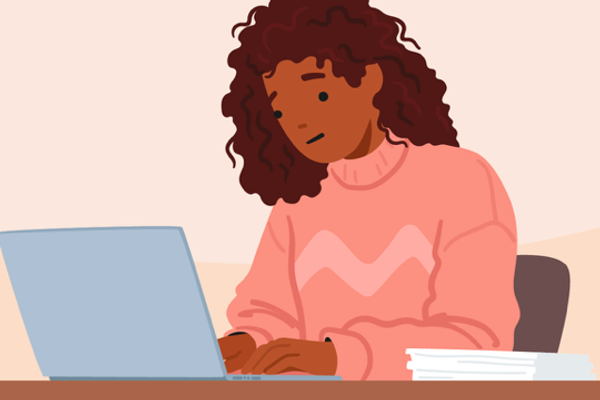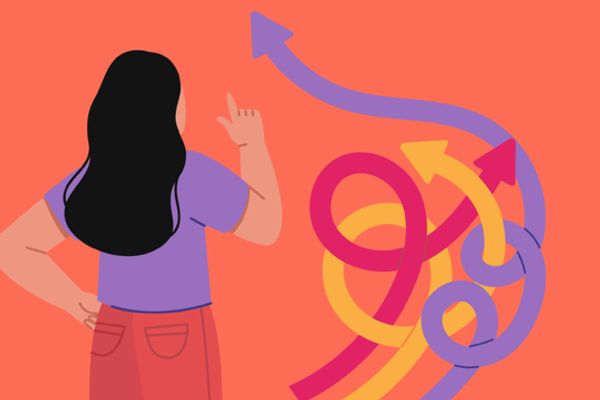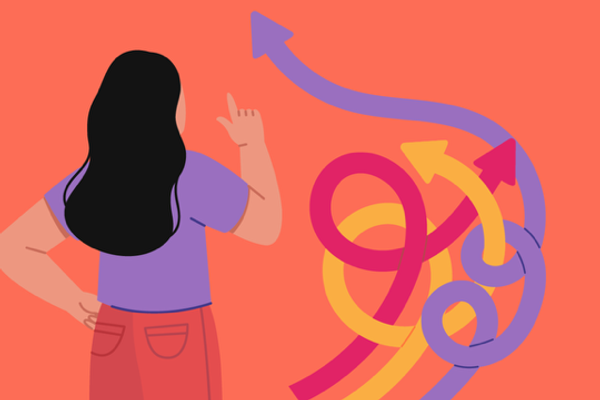February is National Cancer Prevention Month.
Each year, nearly 20,000 women in the United States are newly diagnosed with ovarian cancer and nearly 13,000 die — more than from any other reproductive system cancer.
HealthyWomen had a conversation with Valerie Palmieri, president and chief executive officer of Aspira Women’s Health, to discuss how women can manage ovarian cancer risks. According to Palmieri, most ovarian cancer is discovered late, when the survival rate is as low as 20% to 29%. But, she says, early detection is possible, which can increase survival to 70% to 90%.
This interview has been edited for length and clarity.
HealthyWomen: How did you get into the field of women's health? What motivates you to do this work?
Valerie Palmieri: I'm a scientist by trade, so I have a very high level of curiosity on what makes the body tick. I've always had this thirst for knowledge, especially being a woman. It wasn’t until the early 90s that women were even included in clinical trials to a great extent, so the female body still is like we're exploring the moon and outer space; it has yet to be really understood. Women's health, I believe, really needs a deep down interrogation.
HealthyWomen: Could you explain the current process for ovarian cancer screening?
Valerie Palmieri: Today, there is no ovarian cancer screening test. Our technology is not a screening test. It is for women who present with a pelvic mass. Because you cannot biopsy the pelvic cavity, doctors need to determine if it's a low-risk mass or a high-risk mask. And it's literally a difference of whether you will have your surgery done by a generalist or whether you need to get one of 1,000 specialists in the country. It really is a difference between a good prognosis and a poor prognosis.
About 50% of women actually have two surgeries. When their initial surgery is done by the generalist, the generalist will close them up and send them to a specialist. Surgeries themselves have complications and create delays in time to treatment. You also have someone who initially performed the surgery who doesn't see this disease as frequently. It's very, very important that you get to the right doctor.
HealthyWomen: Okay, if there’s no screening test for ovarian cancer, how are women being assessed for ovarian cancer?
Valerie Palmieri: A woman has to, number one, understand her genetic risks because genetics plays a very large role with ovarian cancer. Number two is ensure they're listening to their bodies. Ovarian cancer is thought of as a silent disease, but it really is not silent. It has symptomatology. We put those symptoms into four different buckets. We made an acronym, BEAT: B for bloating; E for eating and feeling full, such as you normally would get full on the full sandwich and now can only eat a half a sandwich; A for abdominal pain, if you have gnawing abdominal pain and you have that pain more than every other day for 12 days; T for troubled bladder, frequent urination at night, meaning you can't get through the night without going to the bathroom.
If you’ve had the BEAT at least every other day for 12 days, you need to see your GYN. You need to really understand and listen to your body and know what your normal is and know what abnormal is, and then raise your hand and say something.
HealthyWomen: You're encouraging women to speak up if something feels off. When they go to their doctor or healthcare provider, what should women do or expect?
Valerie Palmieri: You can tell by the eye contact if they're really taking it in and taking you seriously. If a woman is dismissed, they need to see another doctor.
Keep a journal so when you go, you can say, “I've had pain six out of seven days. I didn't have this pain a month ago. There's something wrong.”
If you have abdominal pain, see a GI doctor, not just your GYN. Your pelvic cavity can be front or back. It could show up as back pain. That's actually one of the issues with ovarian cancers. Women will go to six or seven doctors before they finally get an ultrasound.
It's really important that you, yourself, say, “I cannot rest until I get an answer.” I know that's really hard, especially for underserved populations who have issues even accessing care.
For all races, the mortality rate is 51%. It's the only sex-specific cancer with greater than a 50% mortality rate. For a Black woman, it's 62% to 63%. Why? Because they have issues getting access to care and when they do finally get care, the disease is advanced, or maybe they're not listened to.
A lot of times we don't talk about the pain because “it's down there.” We need to become more public with our pain. You have to make sure that you're your own advocate. Don't stop til you get an answer and understand the root cause of your pain. Don’t just take pain medicine that could actually just allow the disease to advance.
HealthyWomen: February is National Cancer Prevention Month. This month especially, is there any message you have for women about the importance of cancer risk assessment, screening and prevention?
Valerie Palmieri: Number one, ensure that you have your annual exams with your GYN or primary care provider. Number two is ensure you really do a deep dive on your family history. In ovarian cancer, family history is so important. Talk to your aunts, your uncles, your grandmothers, your grandfathers. Make sure that you record your family history, not only for yourself, but for your children and your children's children because then you can start the proper surveillance.
We're always searching for that panacea in terms of a drug, but when it comes to cancer, really the panacea is early detection. If you find it early, you have a chance to beat it and it's less caustic on the body. Ovarian cancer is one of the most grueling diseases. It's a rare disease and it's been forgotten. Our goal is to ensure that it's not forgotten. The symptoms are real. You can beat this cancer. It's all about catching it early, just like any other cancer.
- Signs and Symptoms of Ovarian Cancer ›
- What You Need to Know About Ovarian Cancer ›
- Ovarian Cancer: Know the Symptoms and Risk Factors ›
- Ovarian Cancer 101: Know Your Treatment Options - HealthyWomen ›
- Living with Ovarian Cancer Was Tough, But the Lessons I Learned Led to Lasting Joy and Clarity - HealthyWomen ›
- My OB-GYN Told Me It Was Nothing to Worry About — But It Ended Up Being Ovarian Cancer - HealthyWomen ›
- What to Do If You’ve Just Been Diagnosed with Ovarian Cancer - HealthyWomen ›
- Qué hacer si te acaban de diagnosticar cáncer ovárico - HealthyWomen ›
- Understanding Your Risk for Ovarian Cancer - HealthyWomen ›
- Comprender tu riesgo de cáncer ovárico - HealthyWomen ›

